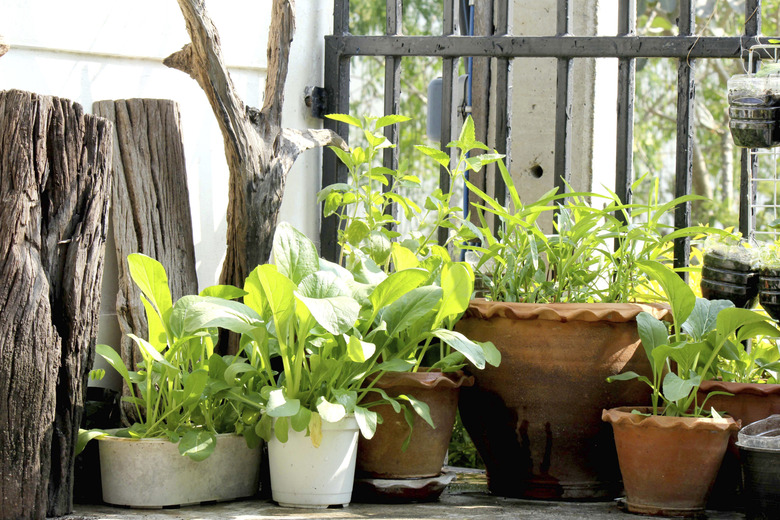Does Music Affect Plant Growth?
Playing music for your plants may seem like a strange thing to do, but research suggests that any sound, including music, helps boost plant growth. Vibrations from sound waves seem to stimulate growth factors. In addition, sounds may not just impact growth; evolution may have given plants "ears" so they can hear warnings about predators.
Music and Growth
Music and Growth
Research has shown that any sound has the ability to stimulate plant growth. In one study, plants that were exposed to sounds for six hours a day showed more growth than plants in a soundless control group. However, that same research showed that while music helped plants grow, it wasn't more effective than non-musical sounds. In other words, plants don't distinguish between music and other sounds. However, music does help plants grow
How Music Affects Growth
How Music Affects Growth
The exact cause of music's effect on plants is unclear. It is thought that plants may have "mechanoreceptors" that respond to pressure. Sound waves are made up of compressed air molecules. In humans, mechanoreceptors in the ears are able to detect and distinguish sound waves in the form of pressure as each wave strikes the inner ear. If plants have similar receptors, they too could respond to the changes in sound waves, such as those from music.
Plant Communication
Plant Communication
Plants also seem to listen to the vibrations of one another. Plants that are near other plants tend to grow faster and healthier than those grown in isolation. Research suggests that plants may "talk" to one another via vibrations, and these communications let a plant know when it is safe to grow. Other research indicates that vibration from sounds such as music can turn genes on and off, indicating that plants may "listen" to their surroundings to know when to express certain genes. If scientists can gain a better understanding of this phenomenon, it is likely that sounds such as music could be used to promote growth.
Plant Defense
Plant Defense
Other evolutionary considerations may have caused plants to develop the ability to sense sound waves. Studies indicate that plants can feel the vibrations of insects eating leaves, and that plants may communicate danger to other plants. The other plants then know to ready their defenses, or even stop growing until it is safe. There is also evidence that plants have evolved to respond to vibrations, such as those caused by the wind. When plants sense the constant vibration caused by the wind, they may know not to grow quite as tall. Being shorter may save them from being snapped or bent by strong winds. More research in this area may help scientists design sounds and music that help plants ward off or prepare for possible harm.
Cite This Article
MLA
Michelle, Meg. "Does Music Affect Plant Growth?" sciencing.com, https://www.sciencing.com/does-music-affect-plant-growth-4596442/. 13 March 2018.
APA
Michelle, Meg. (2018, March 13). Does Music Affect Plant Growth?. sciencing.com. Retrieved from https://www.sciencing.com/does-music-affect-plant-growth-4596442/
Chicago
Michelle, Meg. Does Music Affect Plant Growth? last modified March 24, 2022. https://www.sciencing.com/does-music-affect-plant-growth-4596442/
